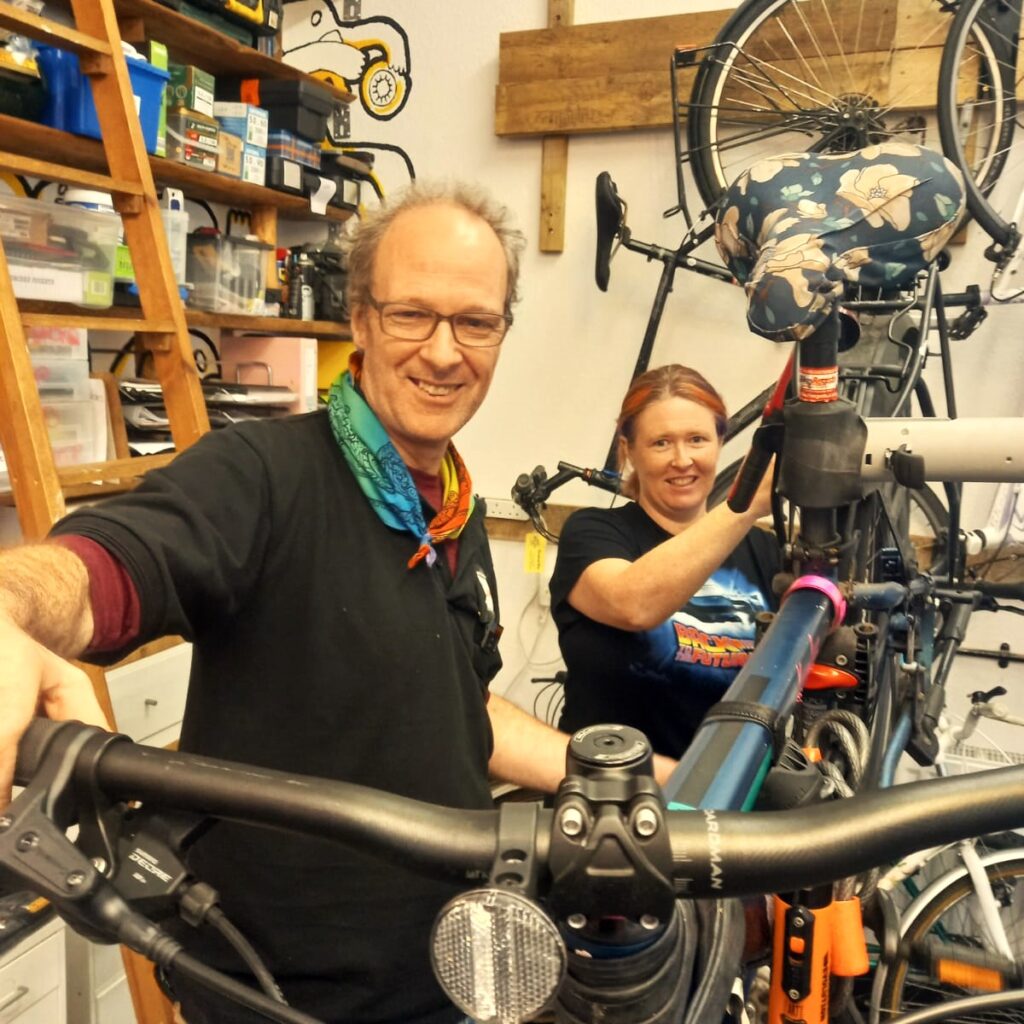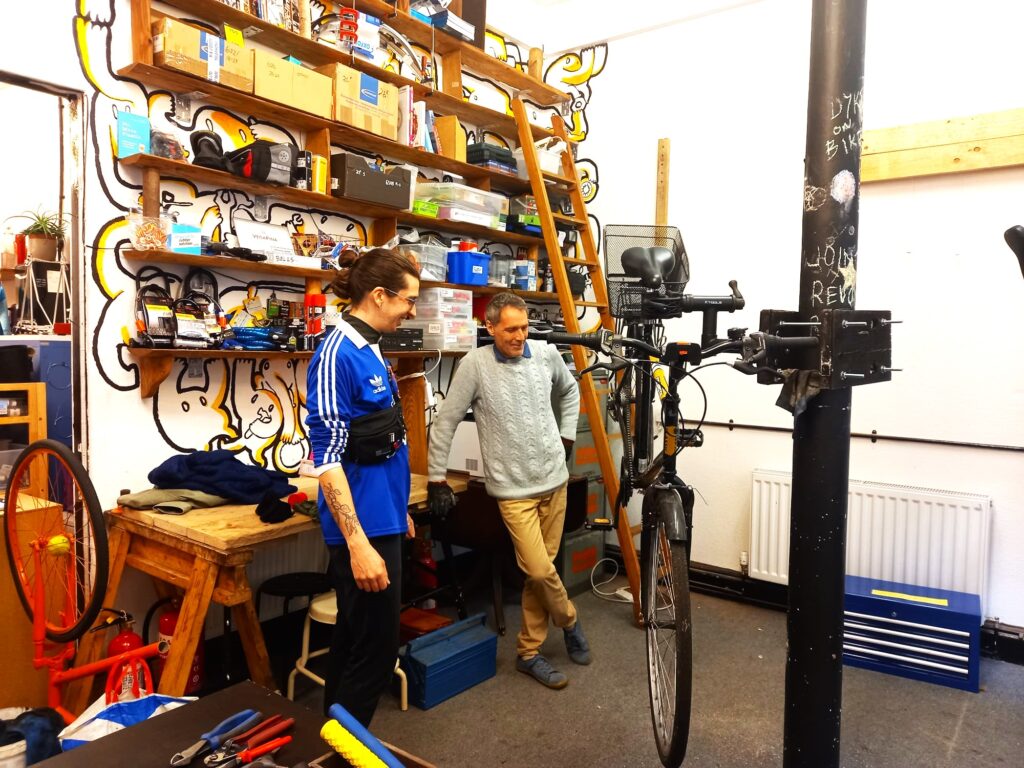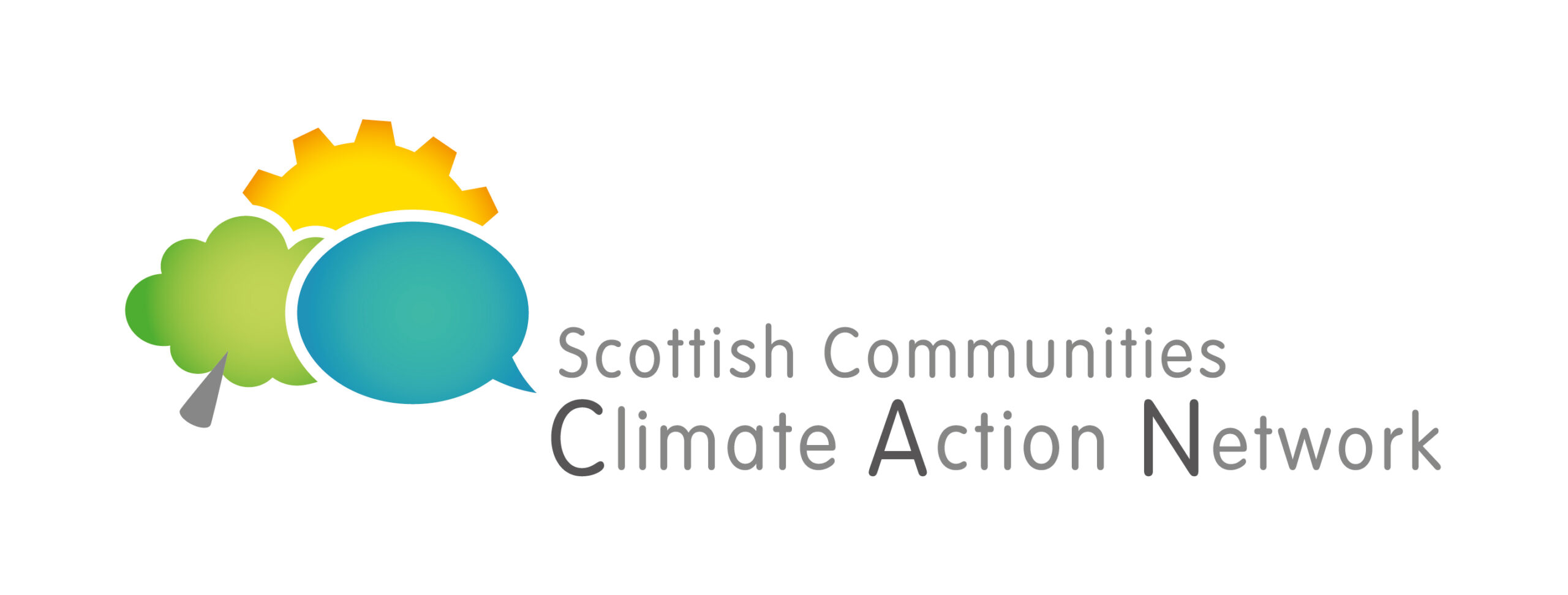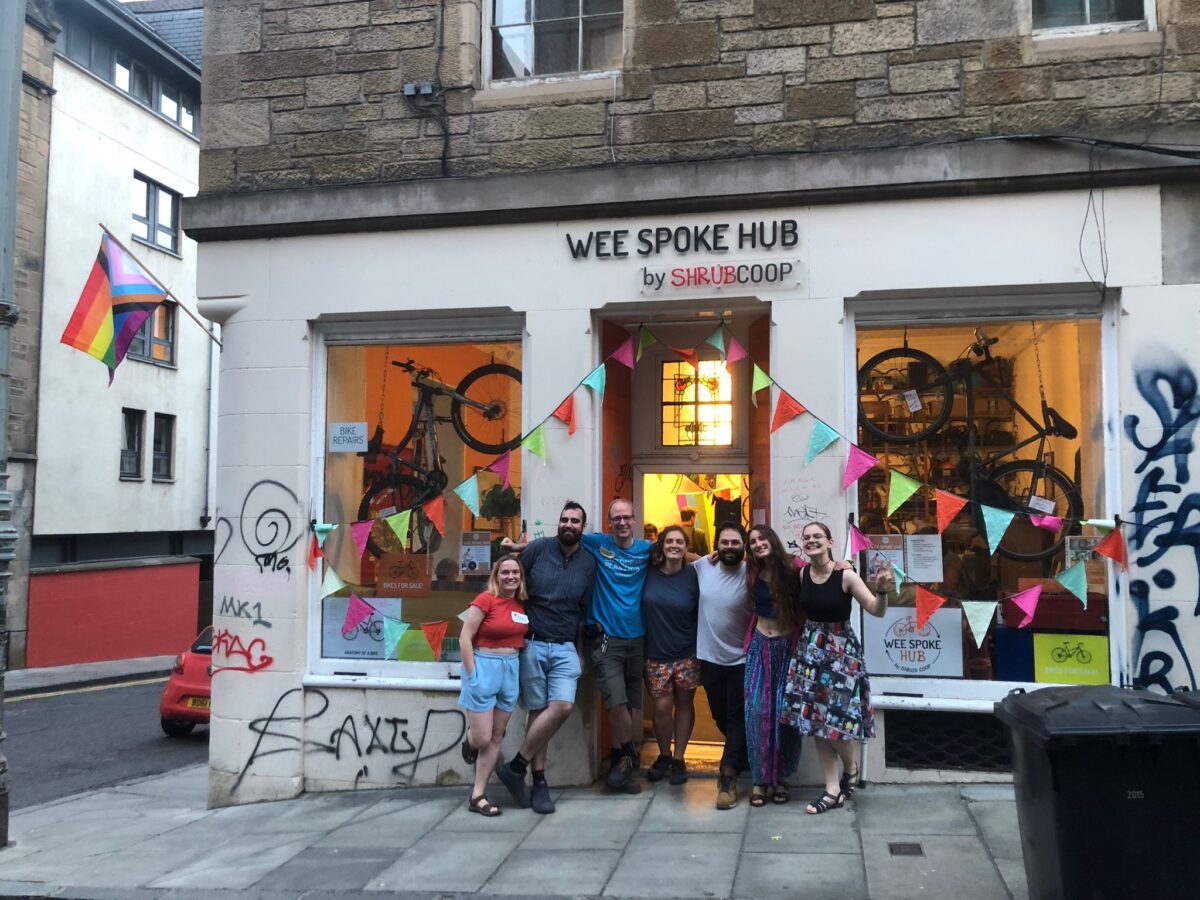A story about the positive impact of two community cycling groups in Edinburgh written by Douglas Rogers and funded through a SCCAN mini grant.
The Wee Spoke Hub
I came across the Wee Spoke Hub (WSH) online not long after returning north. It seemed like a dream come true: a community-led scheme which would not only repair and maintain your bike, but teach you how to do it too. On inquiry I was sad to learn that the Hub had closed during Covid.
A year later, I heard through friends in Critical Mass that the WSH was hosting a re-launch party.
One of the Wee Spoke’s central pillars (spokes?) is inclusivity. They recognise that there’s a host of accessibility barriers involved in getting on a bike, and they want to help address this.
This intention was apparent from re-launch. The space, on Guthrie Street, is miraculously reachable for this kind of initiative. The party itself was as warm and welcoming as you’d hope, featuring a make-your-own-badge station, a meaningfully diverse crowd, free food from parent-group Shrub Co-op, and a brief speech from Mark the mechanic inviting us to be part of this reborn dream.
Despite my presence at the launch, I didn’t know quite what to expect from my first session ‘DIY repair’ session. Definitely not a flamethrower.
I realised in hindsight that I’ve always found there something genuinely scary about bike-shops.
I belong to just about the least-excluded demographic category for cycling culture. Yet for precisely that reason, I’ve felt a strange subgenre of impostor syndrome; a fear that my relative cluelessness will inevitably be shown up, and with this some non-trivial part of my performance of ‘masculine’ identity.
This sounds absurd in abstract, but it can feel altogether serious in a real-life room when you forget the difference between a bolt and rivet, or betray your ignorance as to the true function of washers, derailleurs, axles, threaded bottom-brackets, or lose track of which direction to rotate a nut when it’s inverted.

‘‘‘Real’’’ men are meant to know these things, like they’re meant to know how to change car-tyres. And I have had real experience of the unimpressed chill that can roll in when showcasing such ignorance to genuine experts, hurtling the novice down into the void between ‘endearingly helpless’ and ‘fellow initiate’. Fall into this gap and it can feel quite difficult improve your knowledge by asking what may well be – and on some level need to be – silly questions.
Suffice to say that none of this felt like a problem at the WSH. I turned up on a cold Thursday evening and was grateful for a warm welcome. Both Mark and admin mastermind Mary remembered me from the launch and introduced me to a volunteer mechanic, Kenneth, who would be testing out his own expertise by sharing it with me. This setup felt profoundly democratising – a feeling which the room at large conspired towards.
An ambient sense of welcome seemed to be written into the space itself: the Hub notably lacks the symbolic staff/customer divide which would normally be marked out by a counter. This lack of spatial hierarchy was palpable, lending the room a vaguely ‘sitcom’ feel: Mark and Mary tinkering at useful things in different corners but both very much present, all four of us would stop and greet whatever new characters might walk in through the door.
I would spend the next few hours working together with Kenneth, who took every opportunity to advance my understanding of the interlocking everyday magic commonly referred to as a bike. Whenever something exceeded our (read: Kenneth’s) understanding, we had Mark on hand to set things straight.
One such case was a bent pannier-rack. After some discussion, I watched wide-eyed as the other two extracted a small fixture, secured it in a vice, then fired up something far too dramatic to call a blowtorch in order to restore the fixing’s line. (I should add that this was done with plenty of safety consideration – WSH staff are fun but take their power seriously)
The rest of our work was more nuts and bolts. At the start of our session I’d laid out my requests. Help with aligning the rear pannier was one of these; another was some strange behaviour in my front disc-brake; I also asked if they could find me two unusually-dimensioned bolts to affix a U-lock mount; and, lastly, I asked if they could give a quick look and flag any problems I might have lacked the nous to notice.
The answer to all of these questions turned out to be ‘yes’.

I found there something deeply satisfying about implementing these small acts of care. For me, bikes are one of those things where the more you understand, the more you’re awed: the complexity and intricacy behind staples like brakes and gears; the infinity of way these can combine into a coherent system.
At the same time, this complexity is also deeply tangible. With a few tweaks of a disc-rotor, we restored an unruly brake that had been bugging me for months. Beyond this, Mark did indeed discover some lurking issues which I had yet to even meet: defusing in advance what would have been the major headache of a stripped bolt underneath my rear mudguard.
In a world ever more dominated by sensational abstractions, novelty and output, I’ve found there something quietly radical in the work of maintenance (so often displaced and marginalised along class, gender and racial lines).
And, speaking of the internet, my time in the WSH contrasted starkly with previous forays into bike-care. These days there is a universe of generally well-meaning Youtube tutorials which promise instruction and empowerment without leaving your home. No doubt this has its upsides; but following my time in the WSH, I’m much more sceptical.
The world of online, individualised maintenance might seem convenient, but like so much of human experience it makes a lot more sense when shared.
Youtube instruction provides a really uneven and, frankly, inhuman base of knowledge. When in the WSH it was a revelation being able to ask things like ‘should I be worried about that particular surface rust on my disc brake’s rivets?’ (not really, no) or whether there was anything especially vital to screw in tightly (the bottom bracket, and to a lesser degree some of the headset nuts), or identify problems I couldn’t even articulate (the salty dust around some of my rack’s bolts was a problem caused by the original installation being done without the use of lubricant), or hear Mark’s funny story about his insistence on not overusing the ball-end on a hex key lest it strip the fixture – and then being able to demonstrate what ‘overuse’ would actually look like.
Transmitting information is very different from sharing embodied know-how; and the advantages of using an actual workshop with stands and sprays and specialised tools are hard to overstate. And, much as I found with Critical Mass, this sharing can far exceed the merely tangible: perhaps the best example of this at the WSH would be its commitment to building community among those traditionally marginalised from cycling culture. Whether it’s LGBT+-specific repair sessions or the subtler acts of considering access needs, the outcome is a truly heterogeneous space.
The following week I came back with a second bike (full disclosure: I have two bikes, one of which is electric). We settled back into an easy routine. Kenneth kept an eye on me as I cleaned my chain – something I’d long put off for want of a good place to do it, and of confidence in precisely how and why.
In both cases I left the Hub riding on what felt like a cloud. You forget how smooth a bicycle can be. A few hours’ tinkering had made a profound improvement on my ride quality, and thereby quality of life at large. I no longer fear my gears slipping at bad moments on hills; I feel more connected to my trusty steeds, my fellow riders, and the streets themselves.
In case it isn’t already obvious, I care a lot about cycling. Its range of benefits is borderline absurd: from health to emissions to air quality to road-safety to community fabric and commercial interest. More and more people are starting to recognise that getting on a bike is one of the most effective things we can do to move towards a better world (and indeed, there are signs that the Council is beginning to recognise this too); but it can also come with challenges.
By bringing people together to face those challenges, community efforts like Critical Mass and The Wee Spoke Hub are doing an immense amount of good.
The Wee Spoke Hub is currently offering DIY repair sessions from 4-8pm on Thursdays, plus a range of other events. For more on their vibe, check out this micro-documentary.

